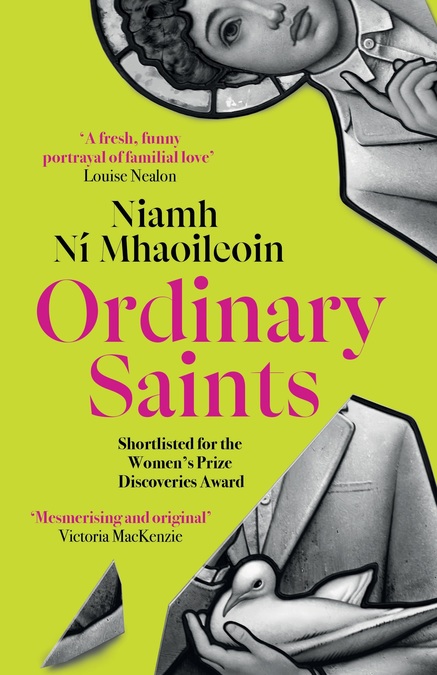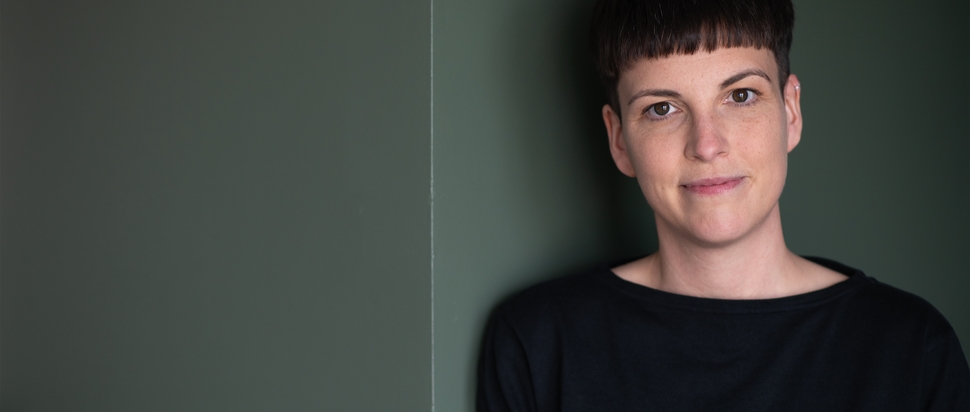Niamh Ní Mhaoileoin on her debut novel Ordinary Saints
We chat with Edinburgh-based Irish author Niamh Ní Mhaoileoin about her debut novel Ordinary Saints, about a family who try to get their son canonised in the church
In her debut novel Ordinary Saints, Niamh Ní Mhaoileoin explores grief and the complexity of family relationships through Jay, who must navigate her parents' attempts to get her brother canonised. After Ferdia died in a freak accident, Jay's mother and father began the complex process that could lead to him becoming a saint as a way to cope with their grief. No longer religious and having left Ireland, Jay is forced to reckon with her family's relationship with her queerness and the conflicting claims on her brother's legacy. We speak to Ní Mhaoileoin about the legacies of the Catholic church, the flattening of narrative, and whether sainthood can be queered.
Something that struck me about the novel is that every character is written with empathy, even those who are homophobic to Jay. How do you achieve that empathy in your writing as a queer writer?
I feel slightly surprised at how generous the book ended up being to most of the characters. When I started out, the earliest drafts were a lot angrier. It was a very incremental process and I guess you just spend so much time with your characters that they become real to you. The subconscious, craft side of writing got me there in a way that my conscious mind probably wouldn’t.
Jay's brother Ferdia is kind, knowledgeable and thoughtful and yet he's a human with flaws, a narrative denied to him in life where he was seen as positively angelic. There's something about the stories of very devout people that can be flattened – were you consciously trying to add shape and nuance to Ferdia's story?
The spark for this story was when I read about the real case of Carlo Acutis who is being called the first millennial saint. He’s actually being canonised two days after the book comes out, which is bizarre and slightly spooky. I started to think how do I tell this story and turn it into a novel? Where I landed was this sibling perspective, but that raises this huge question of who controls our memories once we’re gone. He’s not quite reachable to the reader, who can’t know if he’s being represented fairly by the church or even Jay.

Throughout the book, there's discussion of other saints, modern and ancient. How much research did you do on the canonisation and beatification process?
Growing up in Ireland, we’re pretty saturated in the stories of certain saints but it was in 2020 that I became aware that not only are saints still being made but that there’s more of them than ever. The process is extremely complex and, like lots of things involving the Catholic church, extremely secretive. I was talking to experts and watching documentaries about saints and YouTube videos of beatification masses. Writing in the first person was useful because I was doing the same thing Jay is doing, trying to understand the process as best I could.
You never shy away from an honest account of the horrific trauma and violence enacted by the Catholic church and yet there's a recognition within the novel of the genuine sincerity behind many people's religious faith. Was this nuance something you were aiming for from the start?
There was a very fine line that I wanted to walk: I had a real fear of going too easy on the Catholic church – I still have that fear slightly that I may have gone too far in trying to understand some of their motivations. But I also have lots of people in my life who are religious and I think that’s a completely reasonable and valid way to understand the world and I wanted to capture that. One thing that came out in editing was finding ways to distinguish the institution from the people. I think that’s true for all of us – if we hate an institution but it means a lot to people we love, we find ways to reconcile that.
The title of the book, Ordinary Saints, nods to the church's wish to create more 'relatable' saints but also speaks to the people around us who are in some way performing miracles by surviving in societies and families that don't support who they are. Do you feel like there's a queer, secular equivalent to saints?
I think all of us encounter people in our lives who are just special, who just have something about them where you know this person is good, this person has something ethereal about them. I definitely think that’s true in the queer community. You see it very powerfully in the way that we remember a lot of queer people who were lost during the AIDS crisis. A fundamental part of the understanding of saints is around martyrdom and death – the suffering of queer communities and queer elders is part of what elevates them to that wisdom, kindness and generosity to others even when the world hasn’t been considerate with them.
Ordinary Saints is released on 15 Apr via Bonnier Books
